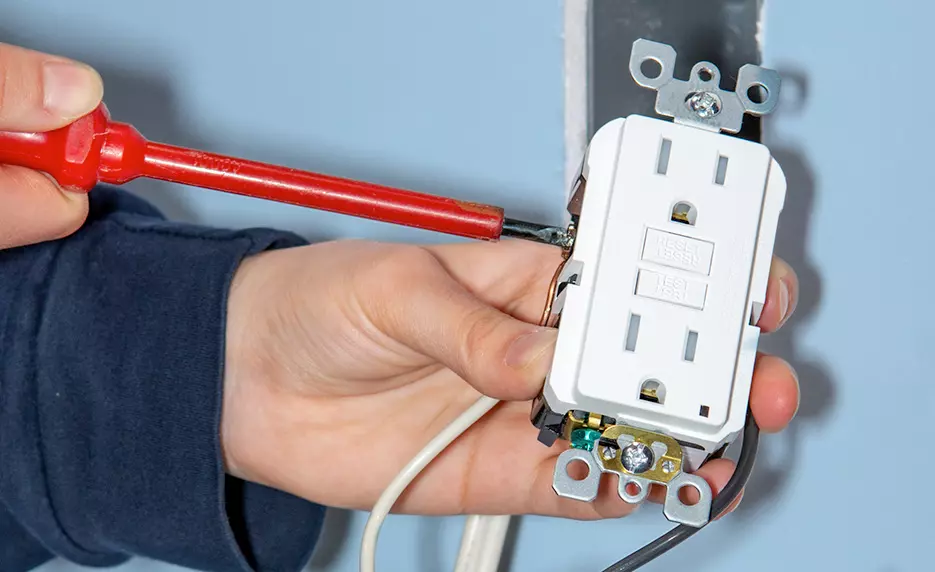PACE NONCREDIT COURSE:
Residential Electrician
Areas of Study
Course Type

Overview
Hours: 144 | Duration: 12 months
With booming infrastructure, new energy conservation projects, and an aging workforce, demand for skilled electricians is on the rise. In fact, the U.S. Bureau of Labor Statistics projects that jobs for electricians will increase 9% through 2030, with around 84,000 job openings for electricians estimated each year.
The Residential Electrician course is designed to teach you the fundamental skills needed to work with residential electrical systems—no previous experience is required. You will learn electrical theory, wiring and installation, safety procedures, use of common hardware and materials, use of building plans, and more. You will also have access to more than 30 virtual simulations that simulate hands-on practice and 10 lessons on customer service, which is one of the most important soft skills employers are looking for and a skill that will help you grow quickly in your career.
In addition, you will be prepared for electrician licensing tests, generally required by most states and localities. While tests differ, you will need to understand the common situations in electrical work, including the use of the National Electrical Code®, local electrical codes, circuits, and various types of wiring methods.
By course completion, you will be prepared to pass your state’s electrical licensing exam and start an entry-level career as a residential electrician or electrician apprentice. Please check with your state, county, or city for residential electrician licensing rules and whether this course’s hours will be accepted towards licensing. *This course does not count towards getting a Massachusetts Electrician license
Curriculum
Syllabus
- Preparing and Planning a Residential Wiring Job
- Residential Workplace Safety
- Hardware and Materials Used in Residential Wiring
- Tools Used in Residential Wiring
- Test and Measurement Instruments Used in Residential Wiring
- Understanding Residential Building Plans
- Determining Branch Circuit, Feeder Circuit, and Service Entrance Requirements
- Residential Service Entrances and Equipment
- Introduction to Residential Service Entrances
- Service Entrance Equipment and Installation
- Residential Electrical System Rough-In
- General Nec® Requirements for Rough-In Wiring
- Electrical Box Installation
- Cable Installation
- Raceway Installation
- Midterm Exam
- Switching Circuit Installation
- Branch-Circuit Installation
- Special Residential Wiring Situations
- Video, Voice, and Data Wiring Installation
- Residential Electrical System Trim-Out
- Lighting Fixture Installation
- Device Installation
- Service Panel Trim-Out
- Maintaining and Troubleshooting a Residential Electrical Wiring System
- Checking Out and Troubleshooting Electrical Wiring Systems
- Green House Wiring Techniques
- Green Wiring Practices
- Photovoltaic (PV) System Installation
- Managing Customer Service
- Winning Customer Service
- Customers Revealed
- Customer Expectations
- Customer Service: Why Do It?
- The Decline (and Revival) of Customer Service
- Moving Forward with the Four P’s
- Traits of Outstanding Customer Reps
- Measuring Customer Service
- Customer Service Communication
- Helping Upset Customers
Course Requirements
Requirements: Hardware Requirements: Software Requirements: Other: Simulation Requirements: Instructional Material Requirements: The instructional materials required for this course are included in enrollment. The following textbooks will be shipped to you approximately 7-10 business days after enrollment: Please note: You will receive a digital book if the physical book is on backorder. Prerequisites: While not required, it is recommended that a person taking this course have some basic knowledge of direct current and alternating current electrical theory.
